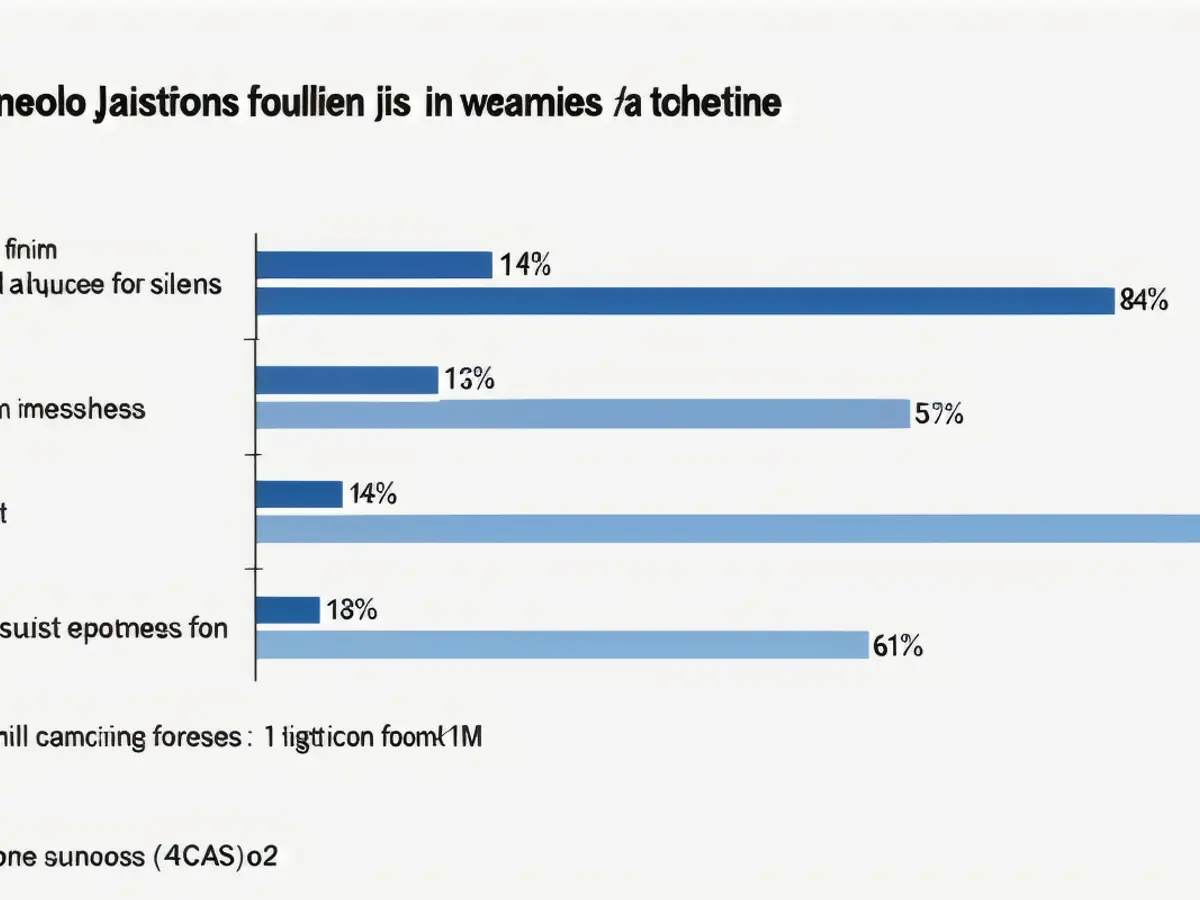Scarcityand escalating prices of roses emerge. - Scarcity and Sky-high Prices Plague Roses
This Valentine's Day, Germans are eager to show their love through gift-giving, shelling out more dough than in previous years. According to a study by the IFH retail research institute for the German Retail Association (HDE), folks are planning to spend an impressive 1.3 billion euros! Compared to 2020, that's a significant leap from the one billion euros spent back then.
The main reason for this uptick in spending? More people are choosing to splash out on their loved ones, with about 28% planning to buy presents – a noticeable increase from the 17% who did so in 2020.
However, a survey by the polling institute YouGov paints a somewhat different picture. Many people in Germany don't consider Valentine's Day to hold much significance. A whopping 41% see the day as completely unimportant, while another 40% view it as having minimal or little importance. A mere 15% consider it very important.
But for those who do celebrate, what presents are they most likely to choose? Let's delve into some popular gifts:
Gifts that hit the spot
When it comes to Valentine's Day gifts, a few options have proven to be crowd-pleasers. According to a 2020 survey by Statista and YouGov, both men and women share similar opinions on what makes a good or less successful gift.
- Flowers: These classic Valentine's Day gifts continue to score highly with 82% of men and 85% of women rating them as a good or fairly good present.
- Restaurant visits: After flowers, a romantic dinner date scores high in popularity.
- Chocolates, sweets, and perfume: These treats also rank high on the list of favorite gifts.
On the flip side, both genders are less enthused about gift cards, cosmetics, and personal care products. Handmade gifts also receive mixed reviews, but women appreciate them more than men do.
In total, just over a third (33%) of respondents plan to give a present to their partner or spouse, while only 4% will offer a small gift to their friends. Parents seem to be least likely to receive gifts, with only 3% expecting to receive something on Valentine's Day.
Pricey gifts that are still in fashion
Flowers, chocolates, and meals at restaurants typically see increased prices around Valentine's Day – and this year is no exception. The Federal Statistical Office (Destatis) reports that the cost of popular gifts increased significantly more than the average last year:
- Pralines rose by 5.8% in 2024 compared to 2023.
- The price of food and drinks in restaurants, cafes, and similar establishments increased by 7.4%.
- Despite a 2.2% overall increase in consumer prices, roses also became slightly more expensive – up 2.7% compared to 2023.
Florists who cash in on Valentine's Day
As Valentine's Day approaches, florists are in high demand. According to the Agricultural Market Information Company (AMI), sales soar by around twice as much as during a regular week. Men are the primary buyers, with a slight increase in prices for red roses due to increased global demand. Red roses remain the most popular choice, accounting for around 38% of cut flower spending.
So, whether you're searching for the perfect gift or looking to treat yourself, Valentine's Day in Germany is a prime time for indulgence!
Despite the increased interest in gift-giving for Valentine's Day, many Germans do not consider the day to hold significant importance, with 41% viewing it as completely unimportant. Contrarily, the IFH retail research institute reports that Germans plan to spend an average of 1.3 billion euros this Valentine's Day, marking a 30% increase from 2020. The Germans' top picks for presents include flowers, romantic dinners, and chocolates or sweets, while personal care products and gift cards are less popular choices.









